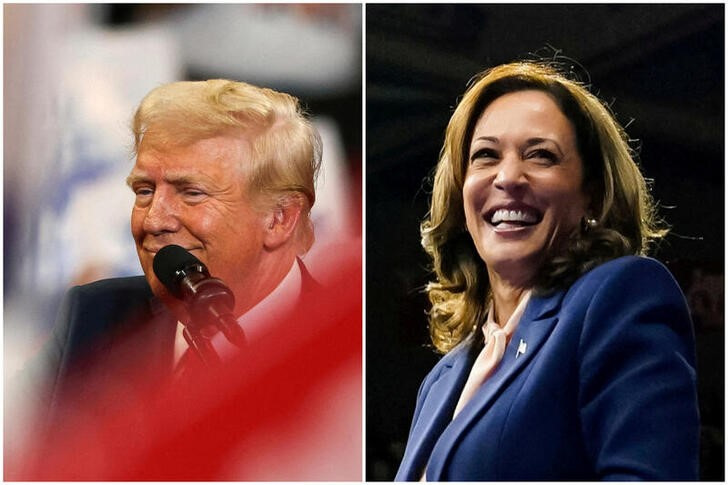Investing.com -- Democratic presidential hopeful Kamala Harris has eroded much of Republican rival Donald Trump's lead on economic issues, furthering tightening the race between the two candidates in key battleground states that could heavily impact the outcome of the November election, according to a new Bloomberg News/Morning Consult poll.
The survey, which focused on several major swing states, shows that Harris now has 7-percentage point advantage among likely voters in Nevada, 5 points in Pennsylvania, 3 points in Arizona, Michigan and Wisconsin, and 2 points in North Carolina, Bloomberg News said.
In Georgia, which voted for Trump in 2016 and US President Joe Biden in 2020, the Bloomberg/Morning Consult poll was equal. A separate poll from Fox News has Harris receiving 51% support to Trump's 48% in the state.
But Bloomberg said the leads in its poll fall within the statistical margin of error, highlighting that the election -- now roughly 40 days away -- could ultimately be decided by thin margins or come down to one state in the Electoral College.
Crucially, voters' estimations of how Harris would steward the economy have improved, although Trump retains a lead on that all-important question, Bloomberg said. Voters in battleground states have said the economy remains their biggest priority when deciding who to back.
Trump's advantage on the issue now stands at 4 percentage points, down from 6 points in a prior poll in August, the Bloomberg poll showed. Meanwhile, when asked who would be better at handling the price of everyday goods, it was all but tied: 47% for Trump, 46% for Harris.
In general, however, almost seven out of ten voters said they believe the economy is currently on the wrong path, Bloomberg noted.
The poll comes as Harris has emphasized the economy in recent days, including the roll-out of an 82-page official policy guide that details plans to lower costs of items like groceries and healthcare and boost the manufacturing sector.
Trump, meanwhile, has offered a competing vision that would feature blanket tariffs on virtually all imports and a lower tax rate for US manufacturers.
